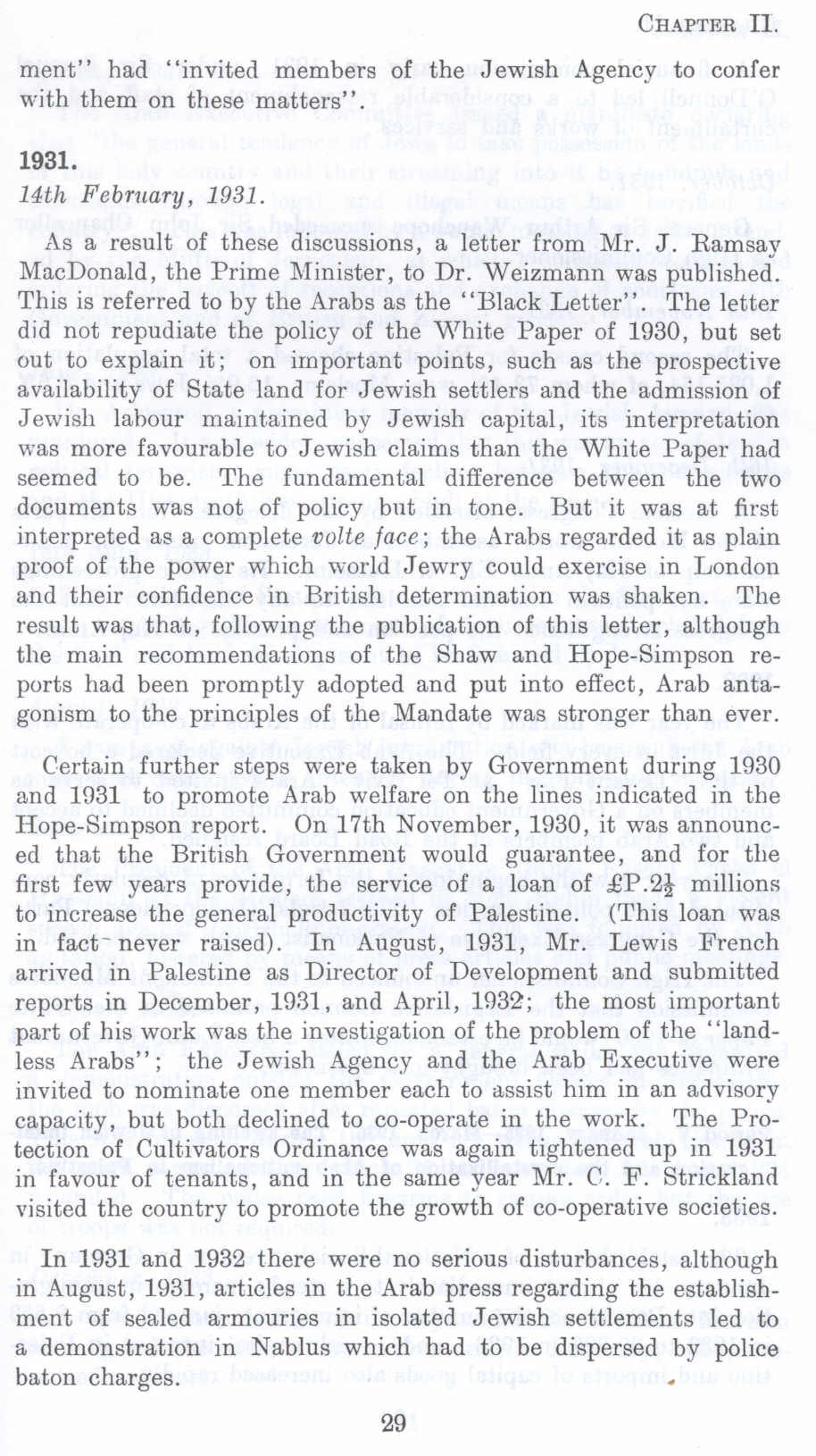| Prev | Next |  |
| Prev | Next |
| PalestineRemembered | About Us | Oral History | العربية | |
| Pictures | Zionist FAQs | Haavara | Maps | |
| Search |
| Camps |
| Districts |
| Acre |
| Baysan |
| Beersheba |
| Bethlehem |
| Gaza |
| Haifa |
| Hebron |
| Jaffa |
| Jericho |
| Jerusalem |
| Jinin |
| Nablus |
| Nazareth |
| Ramallah |
| al-Ramla |
| Safad |
| Tiberias |
| Tulkarm |
| Donate |
| Contact |
| Profile |
| Videos |
British Mandate: A Survey of Palestine: Historical Summary, 1931. Revival of Arab antagonism to the Jewish National Home. The White paper of 1930. Volume I - Page 29 |
Disclaimer
The above documents, article, interviews, movies, podcasts, or stories reflects solely the research and opinions of its authors. PalestineRemembered.com makes its best effort to validate its contents.


Post Your Comment
*It should be NOTED that your email address won't be shared, and all communications between members will be routed via the website's mail server.
ment" had "invited members of the Jewish Agency to confer with them on these matters".
1931.
14th February, 1931.
As a result of these discussions, a letter from Mr. J. Ramsay MaoDonald , the Prime Minister, to Dr. Weizmann was published. This is referred to by the Arabs as the ''Black Letter''. The letter did not repudiate the policy of the White Paper of 1930, but set out to explain it; on important points, such as the prospective availability of State land for Jewish settlers and the admission of Jewish labour maintained by Jewish capital, its interpretation was more favourable to Jewish claims than the White Paper had seemed to be. The fundamental difference between the two documents was not of policy but in tone. But it was at first interpreted as a complete volte face; the Arabs regarded it as plain proof of the power which world Jewry could exercise in London and their confidence in British determination was shaken. The result was that, following the publication of this letter, although the main recommendations of the Shaw and Hope-Simpson reports had been promptly adopted and put into effect, Arab antagonism to the principles of the Mandate was stronger than ever.
Certain further steps were taken by Government during 1930 and 1931 to promote Arab welfare on the lines indicated in the Hope-Simpson report. On 17th November, 1930, it was announced that the British Government would guarantee, and for the first few years provide, the service of a loan of £P.2;!- millions to increase the general productivity of Palestine. (This loan was in fact- never raised). In August, 1931, Mr. Lewis French arrived in Palestine as Director of Development and submitted reports in December, 1931, and April, In32'; the most important part of his work was the investigation of the problem of the "landless Arabs"; the Jewish Agency and the Arab Executive were invited to nominate one member each to assist him in an advisory capacity, but both declined to co-operate in the work. The Protection of Cultivators Ordinance was again tightened up in 1931 in favour of tenants, and in the same year Mr. C. F. Strickland visited the country to promote the growth of co-operative societies.
In 1931 and 1932 there were no serious disturbances, although in August, 1931, articles in the Arab press regarding the establishment of sealed armories in isolated Jewish settlements led to a demonstration in Nablus which had to be dispersed by police baton charges.
Page 29